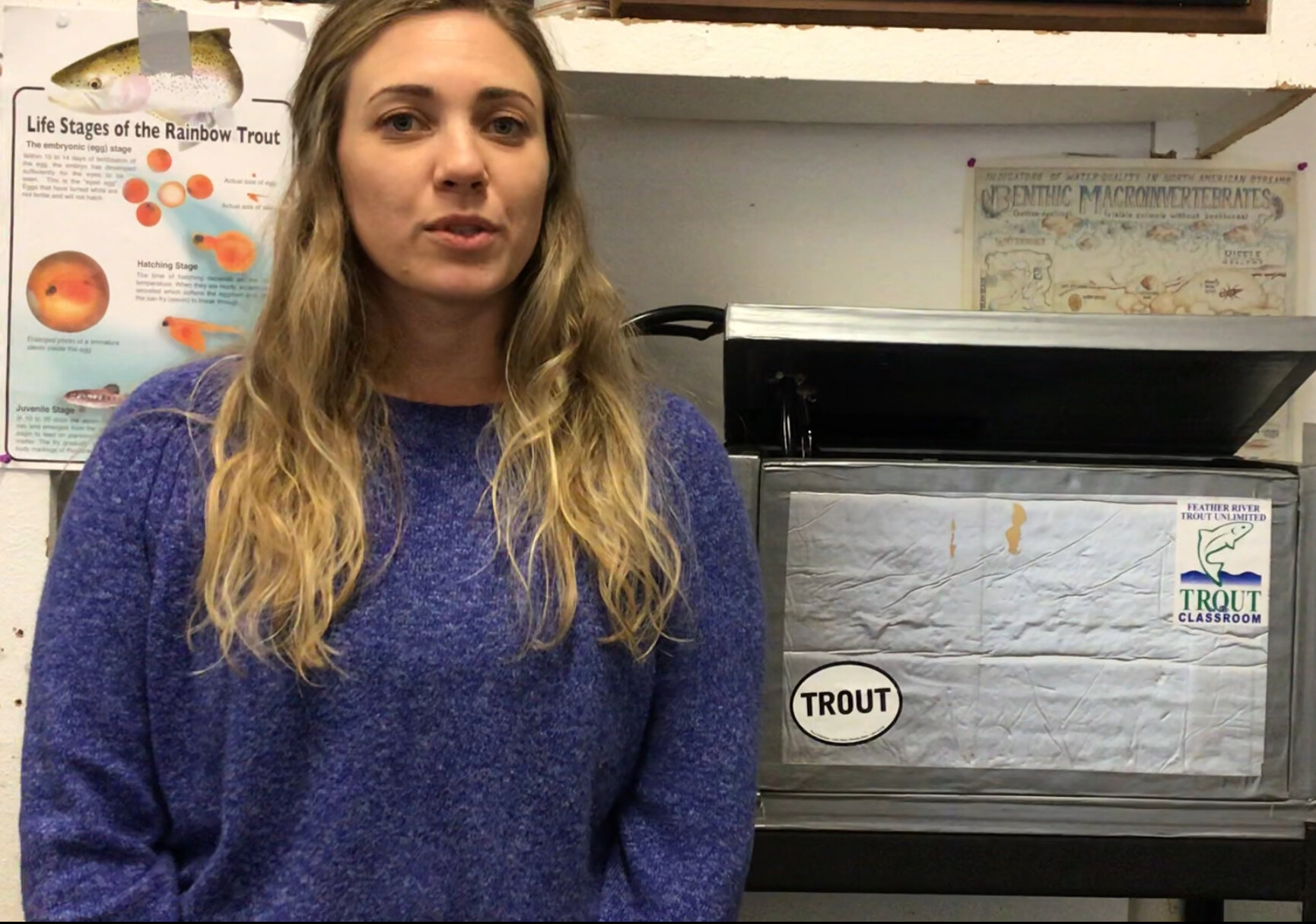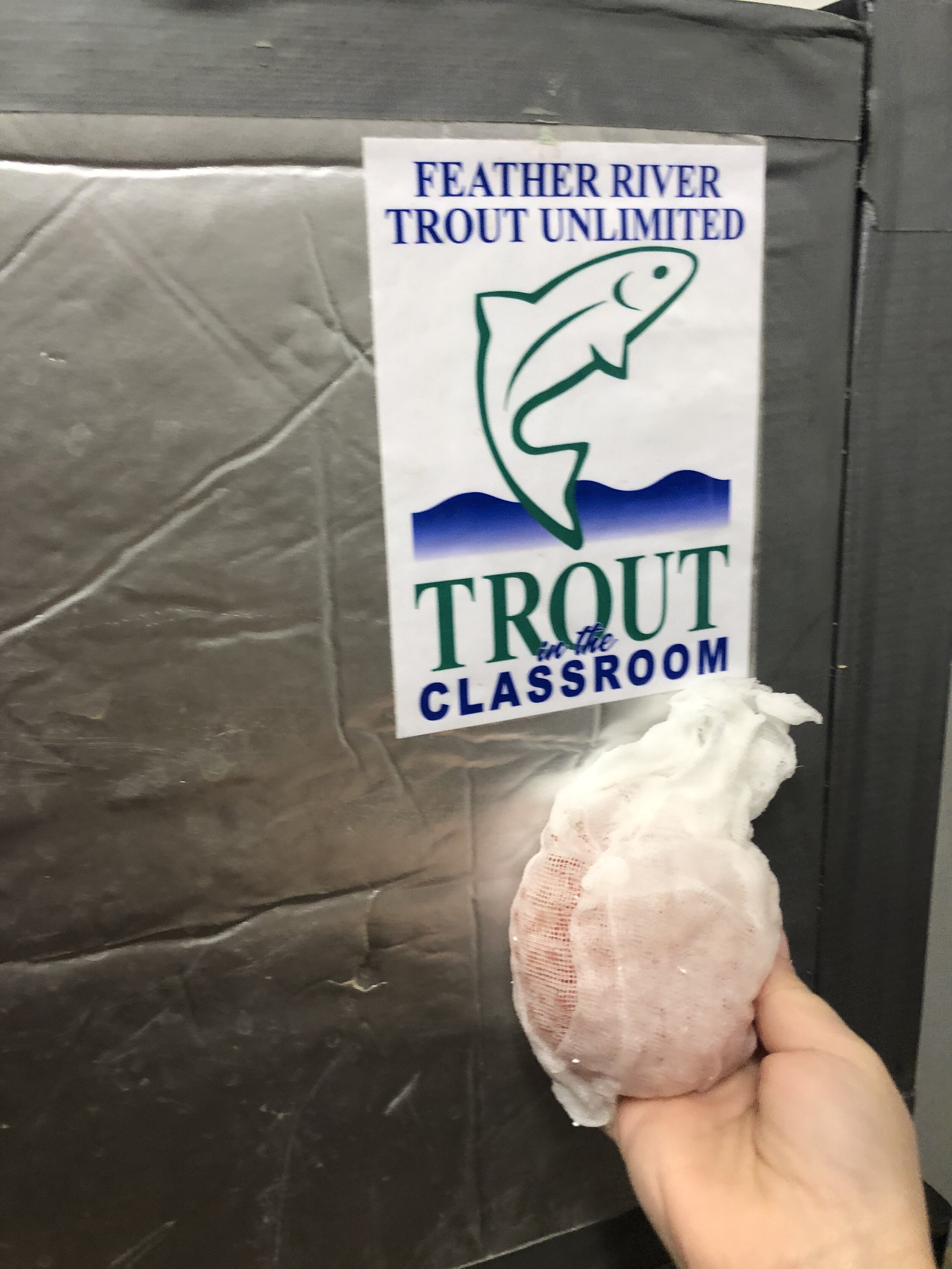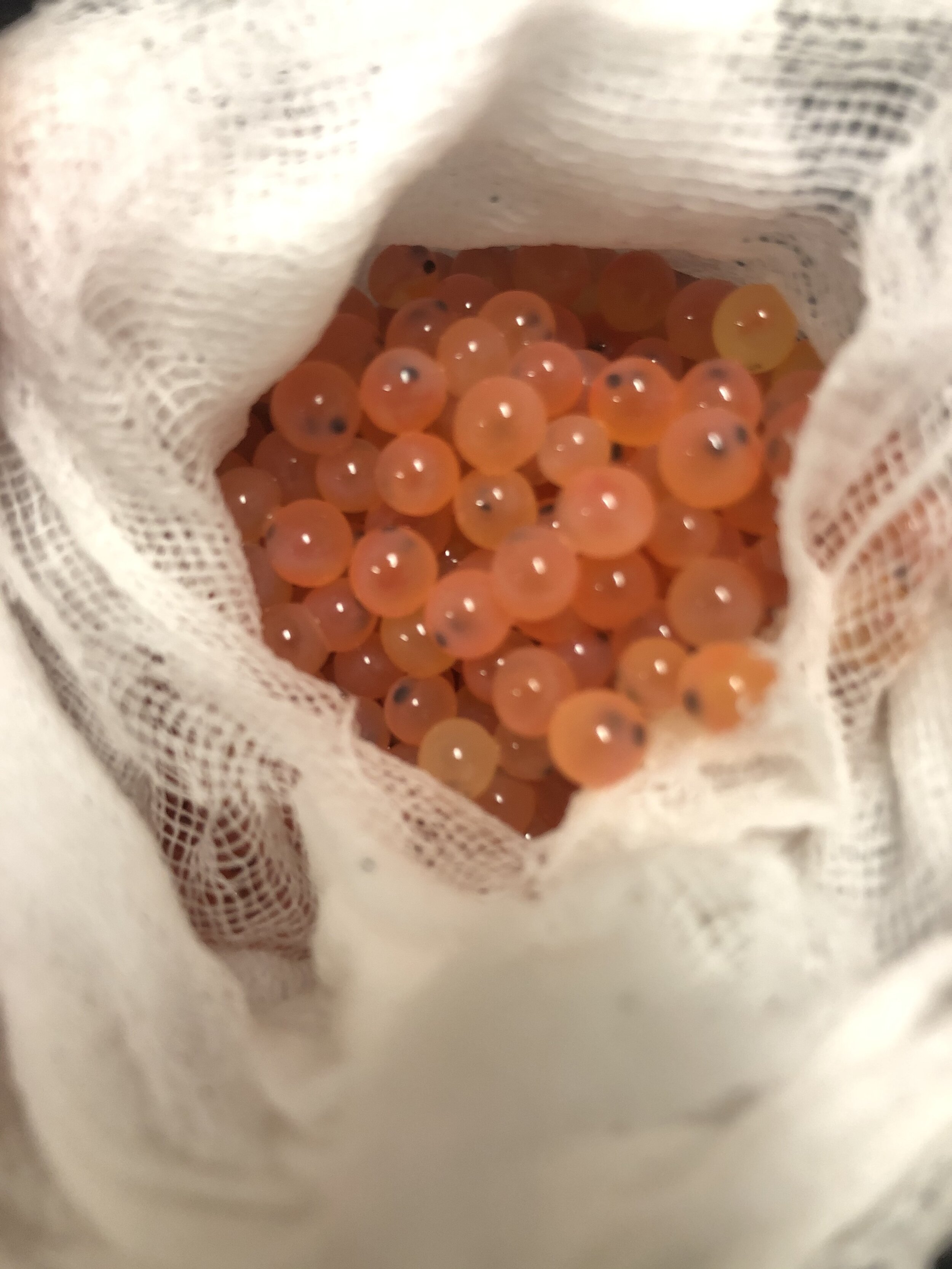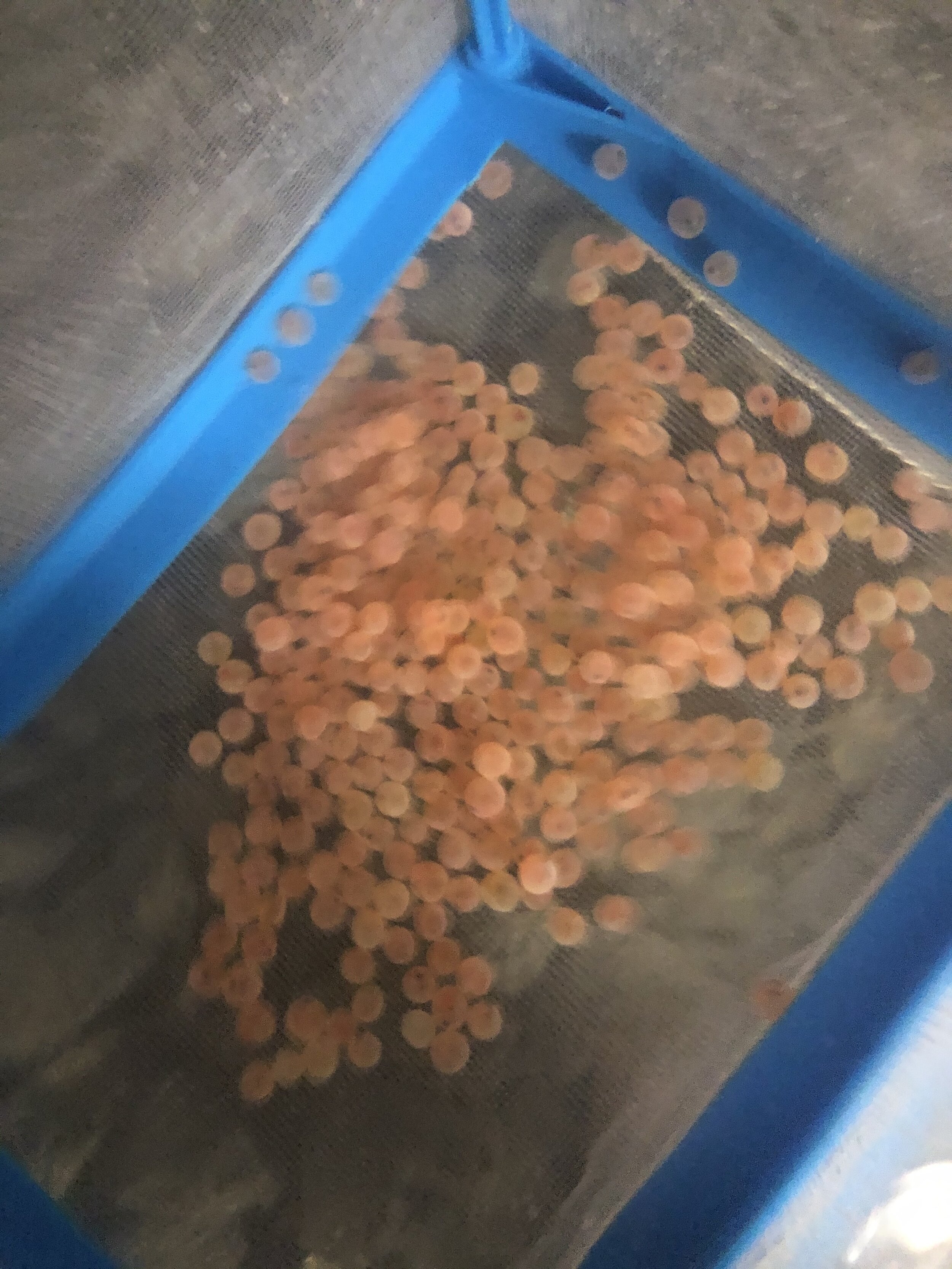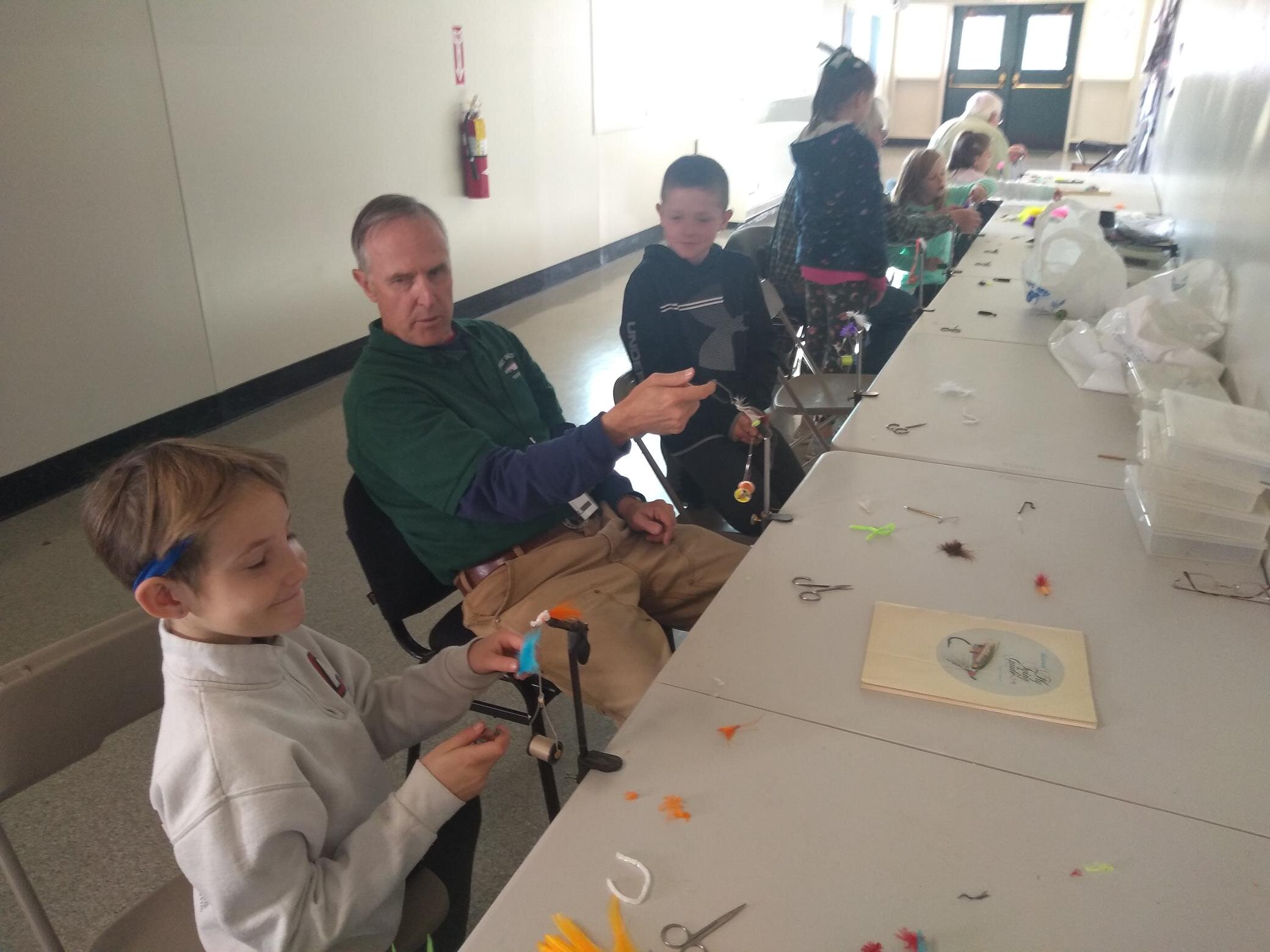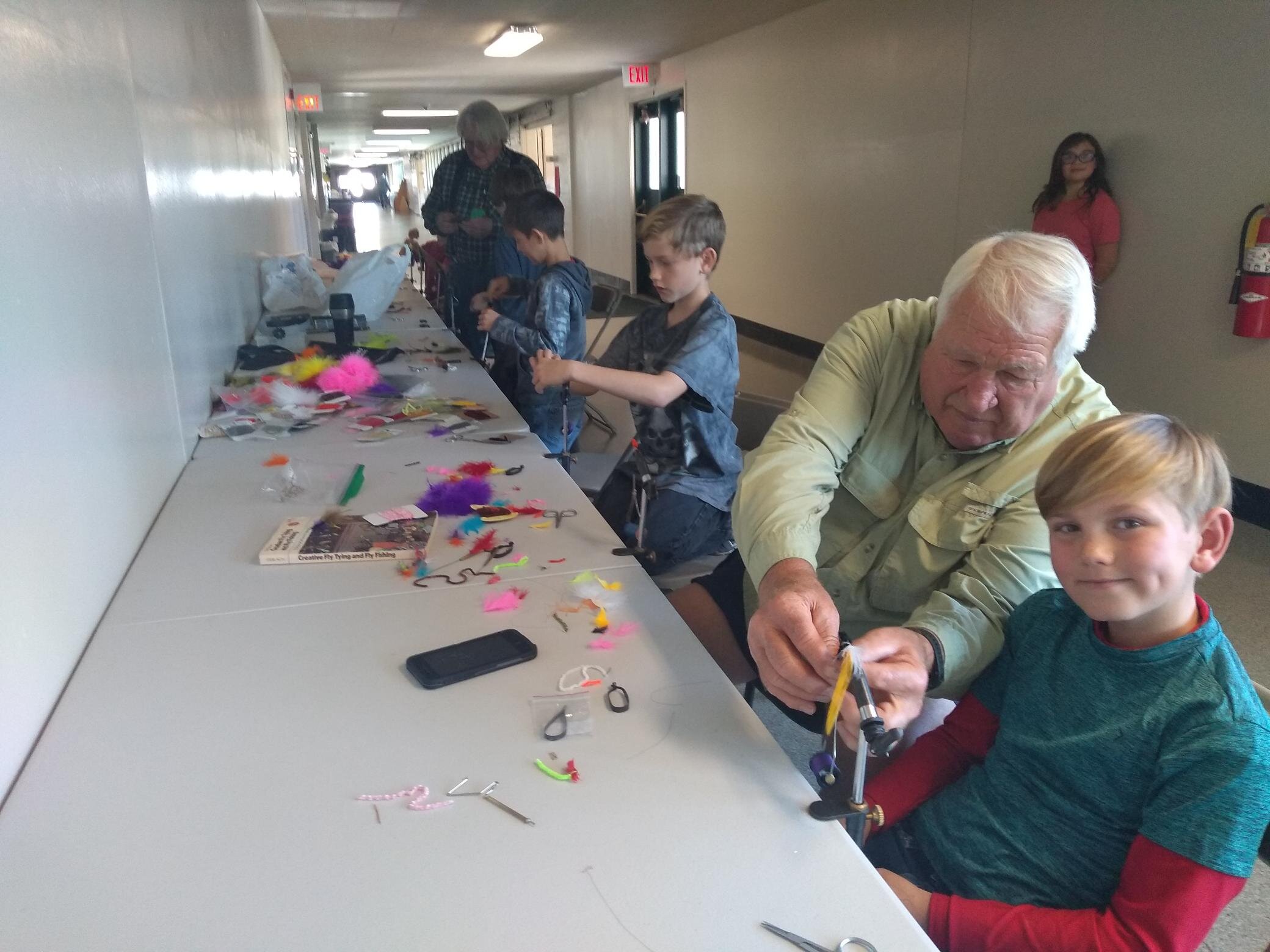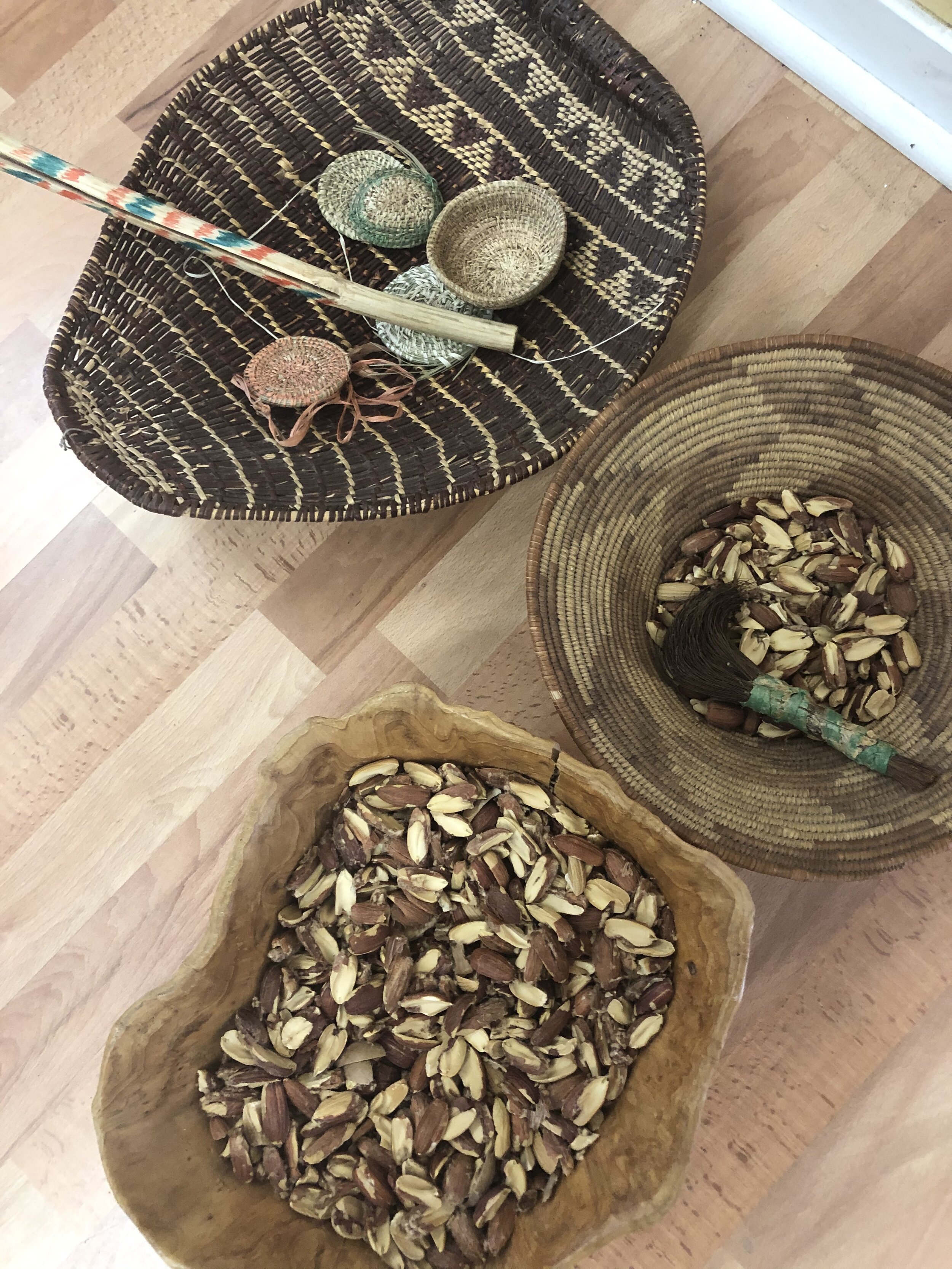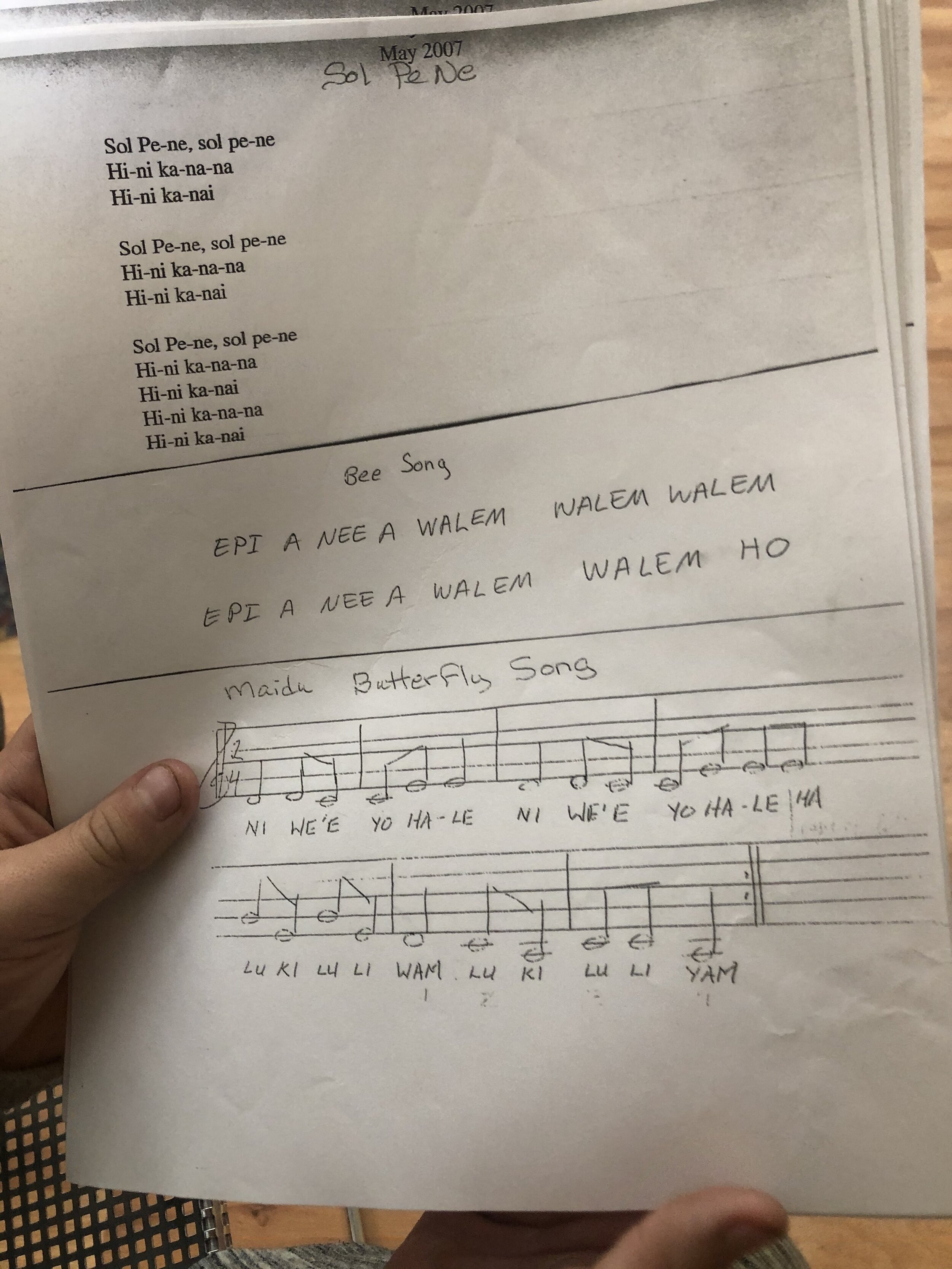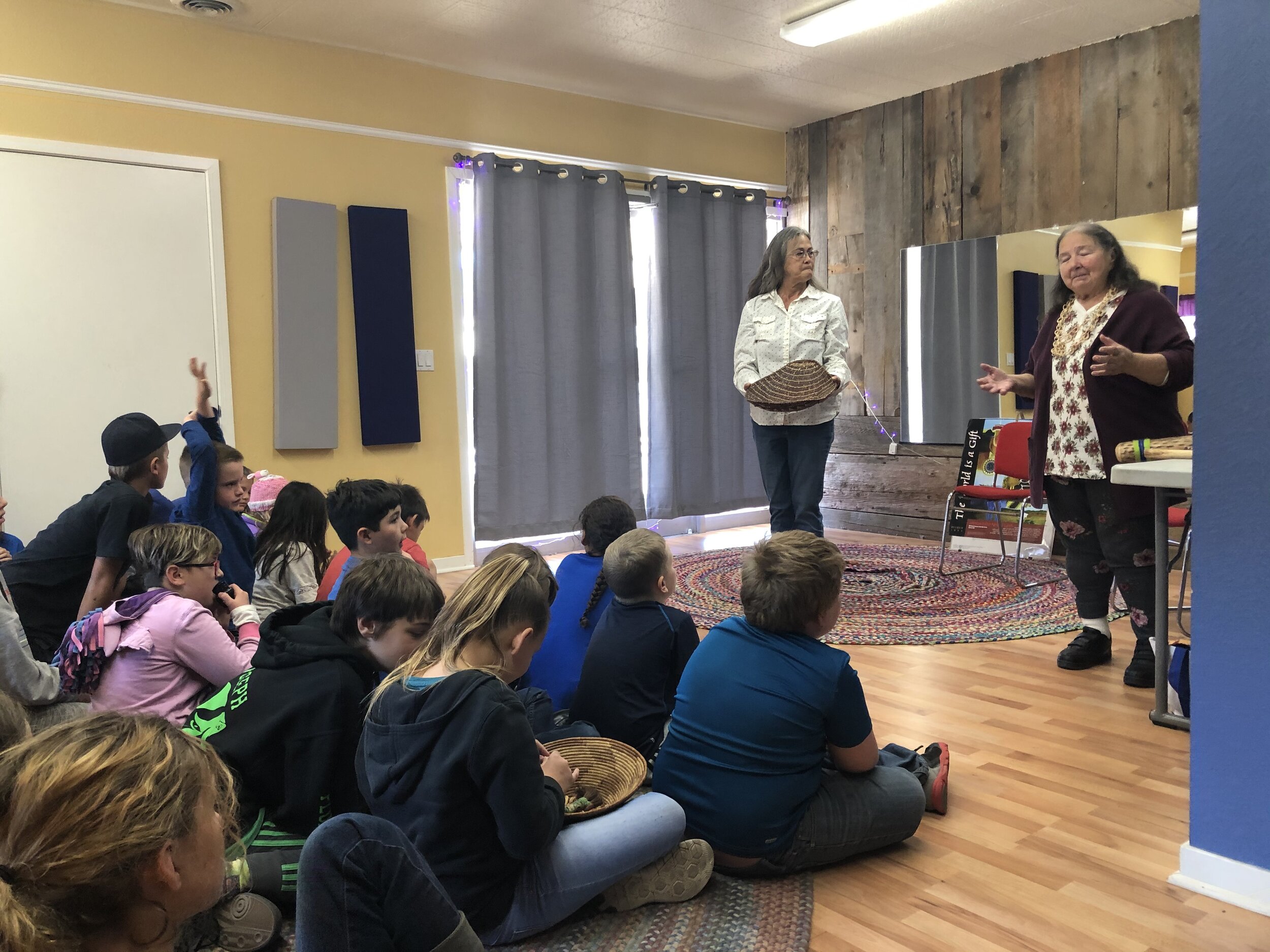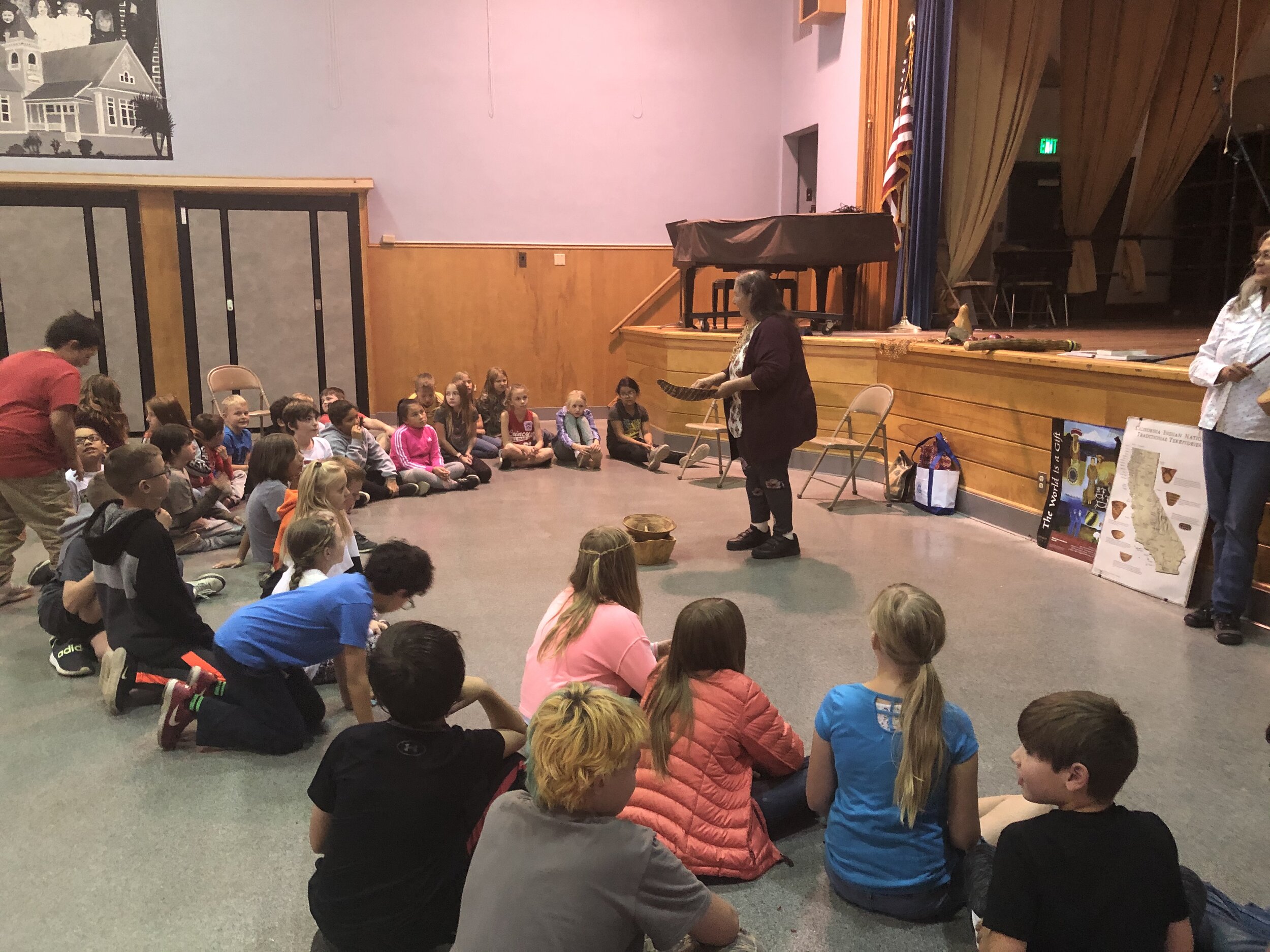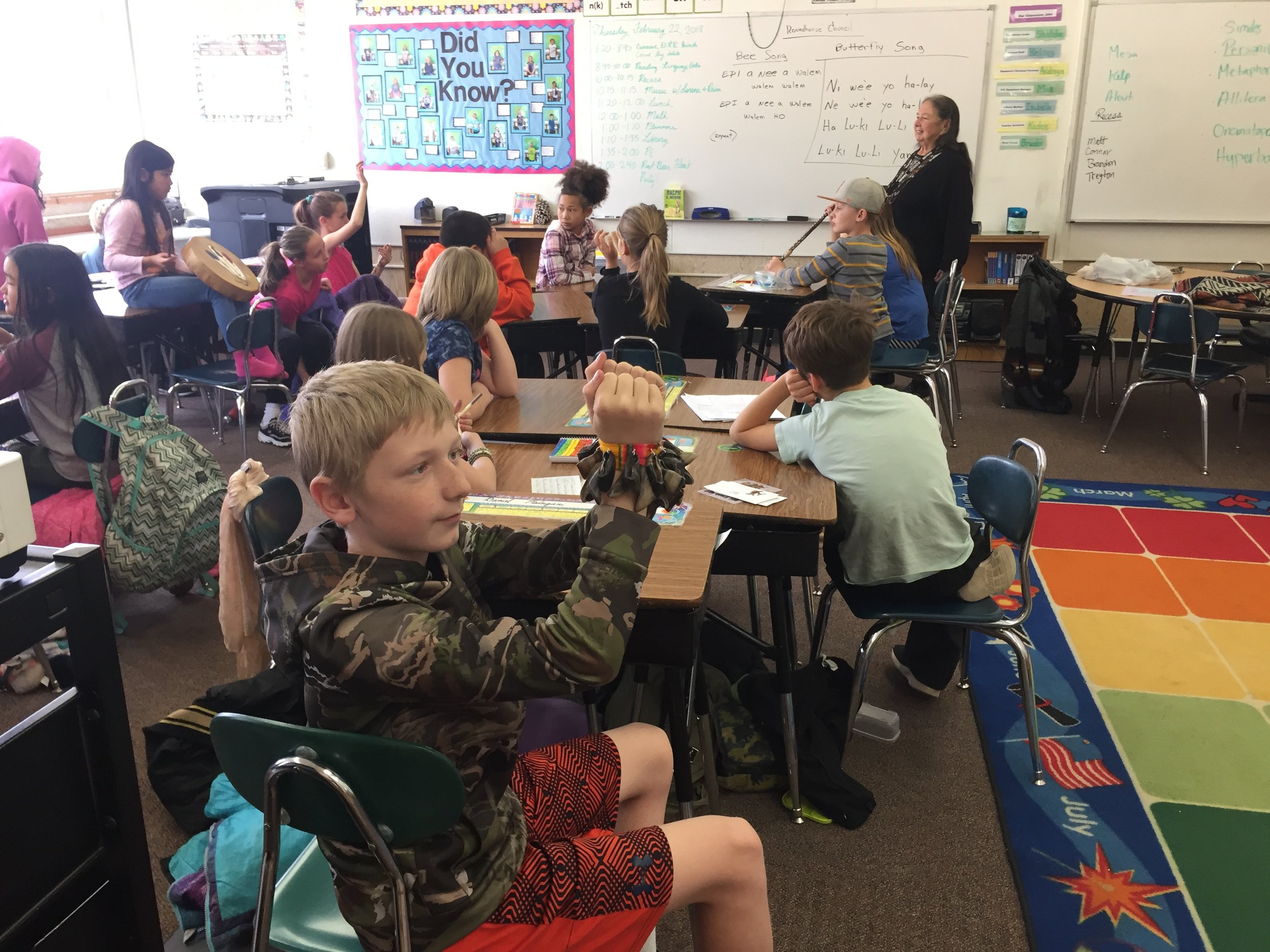Teachers, students and FRTU members alike were all bummed out that TIC was going to be cancelled this year due to the Coronavirus and school and state shutdowns. After some creative ideas, Michelle, TIC Coordinator, Whitney Maez, some CA DFW people and the Mt. Shasta Hatchery hatched a plan to bring TIC to your home this year. The aquarium is set up just like it would be in a regular classroom. Videos and updates will be posted weekly to keep students at home involved in the hatching process. Check TIC Live for the day by day incubation from the spring 2020 hatch.
Classroom Activities for the 2019/2020 School Year
We are well into the school year and our member-volunteers have been busy. As sponsors for Plumas Unified School District (PUSD), Feather River Trout Unlimited provides aquatic aquariums for the Year of the Trout. This is aimed at 4th graders in the district for PUSD and any grade level with Charter schools or other participating schools. Part of our sponsorship, we provide a number of additional activities. Flying tying has been the most common, along with field days where we host a wide variety of fish related activities including casting practice, macro invertebrate identification, a piece from Lorena and Riena who are members of our local tribal group for TEK, art projects, and field observing.
In our gallery down below, we have 2 of our 3 fly tyers, Dave Wood in the first picture, and Mike Kossow assisting a student in the second. Not pictured is Bill Copren. The three of them have been the center of flying tying, who like mentioned, have been the core of our teacher favorite activity. The three travel to the western edge of Plumas country all the way to Sierra county in the east to serve the students.
The following images are from our Traditional Ecological Knowledge presenters, Lorena Gorbet and Reina Rogers. Lorena is a Maidu elder in Greenville and Reina worked with tribal relations. She had an article published in News from Native California while she was with the USDA National Resources Conservation Service. The two of them commonly present with Maidu traditions, music pieces with instruments and songs, and show their acorn baskets. They allow the students to taste the acorns, which when untreated, are quite tart! The images show the presenters at Plumas Charter School, Quincy site, talking with the 3rd-5th graders and also the two 4th grade classes from Quincy Elementary.
We have more TEK and fly tying + field days planned for the 2020 portion of the school year and are very excited to talk about our trout egg arrival come spring.
A Very Buggy Day
Identifying Macroinvertebrates
TU members Stan and Louise after a successful day of bug identification.
What better thing to do while waiting for the snowpocolipse (which didn't happen) to come than to identify benthic macroinvertebrates? That's what we did at PCS, Quincy site this past Wednesday with TU members Stan and Louise Iverson. Both retired teachers, Stan is a "bug guy" teaching environmental science and Louise also taught upper grades. Louise is an avid fisher, like most TU members, and while Stan enjoys fishing, he usually tags along to check out the water bugs.
Students 9th-12th grade at PCS Quincy got a great start to using dichotomous keys by first keying out themselves with the help of Louise. If you don't know how a dichotomous key works, you take the word "di" meaning to divide into two. As a whole they came up with distinguishing features separating each and every student apart; starting with brown eyes/not brown eyes and using traits such hair color, glasses and braces.
Now substitute teachers can use this dichotomous key to figure out the students in Leslie and Casey's 9th-12th graders.
With the ability to now key out people, the students took to the microscopes to key out some samples of water bugs Stan brought with him. Benthic macroinvertebrates are small aquatic animals living in bodies of water. They are visible with the naked eye (macro) and bottom dwelling (benthic) and have no backbone (invertebrate). They can include worms, crustaceans, and aquatic forms of immature insects like mayflies, dragonflies, midges and beetles. Benthos are often called indicator species because the presence of these give us clues to the health of a stream. I heard some of the students call out as they were able to successfully identify an ephemeroptera (mayfly) and an odonata (dragonfly).
Overall, our TU members were received very well by the students at Plumas Charter School. Stan and Louise are even willing to come back to this class and get their hands and feet wet while sampling a nearby creek.
Maidu Traditional Ecological Knowledge and TIC
A student from Veronica Tilton's 9th-10th grade science class at Indian Valley Academy is excited about the acorn presentation by Lorena Gorbet and Reina Rogers.
This year Trout in the Classroom (TIC) has expanded its program to include presentations from Reina Rogers and Lorena Gorbet of the Maidu Roundhouse Council. Reina is a retired soil scientist from the Natural Resource Conservation Service (NRCS) and has a love for all things nature with her desire for environmental protections. Lorena has worked with the Roundhouse Council for many years preserving the Maidu culture and is knowledgable about all things Maidu.
Reina and Lorena are presenting in all of our TIC to teach Maidu Traditional Ecological Knowledge (TEK). They are invaluable and irreplaceable sources of Mountain Maidu knowledge and we are lucky to have them as part of our program. They have entered about a quarter of our classrooms so far this winter/spring and are scheduled to be in the rest of them by the end of March. While many of our classrooms are 4th graders, we also have 6th-12th graders in the program. For most of our 4th graders this year, Reina and Lorena will be presenting on traditional music. The older students are getting lessons on native plant identification and the longer classes had an acorn mashing and preparation class.
Lorena talking about the importance of acorns in Veronica Tilton's science class at the Indian Valley Academy, Plumas Charter School.
Lorena entertaining Heidi Kingdon's 4th grade class with instruments at Greenville Elementary.
Our hopes in adding Reina and Lorena to the Trout in the Classroom program is that students will develop an understanding of what life was like for people who lived and thrived in this region. Since a healthy trout population now depends on humans protecting and caring for our environment, there is no better way to learn about stewardship than the original stewards of the land.
If you are interested in more about native plants, Reina has suggested as part of eating wild plants, Living Wild by Alicia Funk. Information about the book and author at: http://www.livingwild.org/ and copies can be found at https://www.amazon.com/Living-Wild-Gardening-Cooking-California-ebook/dp/B01LXMRXOP/ref=sr_1_1?s=books&ie=UTF8&qid=1510865936&sr=1-1&keywords=living+in+the+wild+alicia+funk.
Another resource is something Reina compiled herself while at NRCS, https://www.nrcs.usda.gov/Internet/FSE_DOCUMENTS/nrcs144p2_063807.pdf. This is a guide of native plants and native uses.
Students at Heidi Kingdon's 4th grade class go the opportunity to play with instruments from Reina and Lorena.
Fly Tying at Plumas Charter School
Member and fly tying extraordinaire, Bill Copren, leading a group of 9th-12th graders flying ties for the first time.
As part of our community outreach, our Feather River Trout Unlimited Chapter is fortunate enough to have dedicated members who specialize in different activities; fly tying is one of those areas. Last week, members Bill Copren and Dave Wood directed two groups of 9th-12th grade students in fly tying. Fly tying is the first of a three part series we are doing with the students at Plumas Charter school. Next week, we have members doing a macroinvertebrate presentation with our "bug guys" (and gal). Two weeks after that we will finish off our 'mini series' with a fly casting afternoon.
Bill, Dave and other members of our chapter will be visiting several Trout in the Classroom participants in the second part of the school year before and during their trout eggs make their appearance for the 2017-18' school year. Age groups range from 4th graders to 12th graders all walk away with a fly and hopefully only a few pokes from the hook. Yes, even 4th graders can do this activity, and they all love it.
Member Dave Wood captivating the students at Plumas Charter School with his fly tying expertiese.
Fly tying can be intimidating for those who haven't done it before. There are hooks and bobbins, marabou feathers and chenille. But somehow, after an hour of instruction from Bill and Dave, everyone walked away with a little knowledge, appreciation and a fly ready for casting. Whether you catch any fish is up to you!
Teacher, Casey Peters, preps his students for the activity.
Trout in the Classroom 2017/18 Year
On November 9th, Feather River Trout Unlimited hosted a teacher training for our program, Trout in the Classroom (TIC). The California Department of Fish and Wildlife came from Rancho Cordova for our half day workshop to train 13 new teachers for our program. They learned about healthy water habitats, invasive species and how to maintain an aquatic habitat in their classrooms.
We had tribal members Reina Rogers and Lorena Gorbet from the Round House Council introducing Maidu Traditional Ecological Knowledge. Their addition to our program further enhances our ideas on sustainability and place based learning. Reina and Lorena will be going into classrooms throughout the year introducing topics like acorn mashing, song, projects and forest walks in addition to our members who will be doing activities such as fish art, fly tying and fly fishing.
With our newly trained teachers, we have 17 teachers with an anticipated reach of 425 people for the 2017/18 school year. Our teachers represent various school districts and charter schools throughout Plumas, Sierra and Lassen counties. Thank you, teachers!
A Trout Raising Experience
This spring, hundreds of young rainbow trout were released by students throughout Plumas, Sierra, Lassen and Yuba Counties who took part in Trout in the Classroom, a program of Feather River Trout Unlimited (FRTU).
Twenty participating classes were provided with an aquarium set-up that included a chiller to keep the water cold; a critical element for trout. They received a bundle of tiny trout eggs in early April and learned the importance of monitoring temperature in their new-found role as tank stewards. The small trout, called fry, were released in waters approved by the California Department and Fish and Wildlife. This year, participants raised triploids which are sterile fish that cannot reproduce and do not pose a genetic impact to native fish populations.
In addition to witnessing a trout’s life cycle, dedicated educators capitalized on a myriad of learning opportunities to make the most of their 4-6 week trout rearing experience. Some learned to tie wooly buggers (an imitation of an aquatic insect), others enjoyed searching for aquatic insects in their nearby creek to learn about a trout’s food chain. Some teachers showed their students how to conduct water quality tests such as pH, dissolved oxygen, and ammonia while others integrated art into their curriculum by creating colorful fish prints, a Japanese art form know as Gyotaku, on t-shirts.
FRTU is proud to offer this program to area teachers and appreciates the many generous organizations that helped to make this year one of our best yet. This growing list includes: Plumas and Sierra Fish and Game Commissions, Common Good Foundation, Ranz Foundation, Grizzly Ranch Conservancy, Downieville Lions Club, Sierra Buttes Snowbusters, Yuba County Water Agency, Camptonville Community Partnership and the Camptonville School Parents Club and E.C. Powell Fly Fishers Club. We could not offer this program without your support. Thank you!


